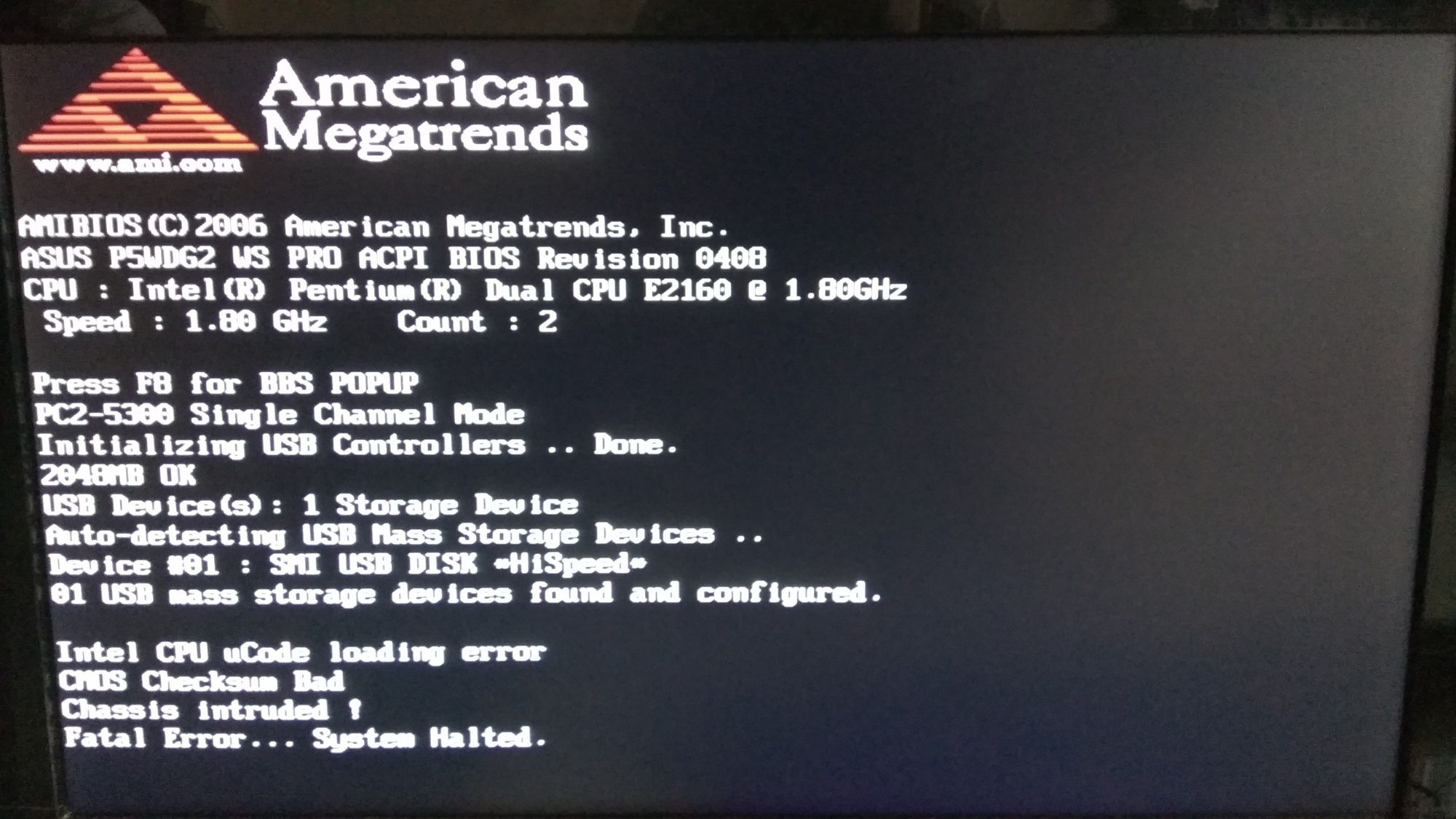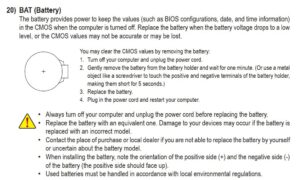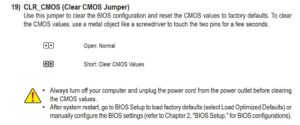
The image above shows an error message that an American Megatrends (AMI) BIOS has brought up at system startup. Until the user fixes the problem, the computer won’t boot. The message is at the end and says: Intel CPU uCode loading error – CMOS Checksum Bad – Chassis intruded! – Fatal error… System halted.
What TPM chassis intruded message means
The error message means that a feature in the BIOS – the Trusted Platform Module (TPM) – is enabled in the BIOS.
If you want to know more about the technical details of TPM technology, visit the following webpage.
Trusted Platform Module (TPM) – https://en.wikipedia.org/wiki/Trusted_Platform_Module
When enabled, this module produces that fatal error message from the BIOS if the case has been opened without valid authorisation. The TPM technology is meant for use in a business that runs large numbers of computers to protect computer cases from being opened and components being stolen. Currently, TPM is provided by almost all desktop PC and laptop PC manufacturers, but it is usually not enabled in the BIOS by default.
That said, home computer users should not enable TPM because it adds complications of the kind that produced the error message shown in the image above for someone who was messing around in the BIOS and enabled it. That person then opened the case without valid authorisation to make changes to the components and doing so blocked him from booting his own computer.
Active TPM 2.0 module is a requirement for Windows 11
Unfortunately, one of the stipulations of being able to upgrade from Win 10 to Windows 11 is that the motherboard has an active TPM 2.0 module.
Why Does Windows 11 Need TPM 2.0? –
https://www.howtogeek.com/738163/why-does-windows-11-need-tpm-2.0/
Reset the BIOS to fix a TPM chassis intruded fatal error
A thief breaking into your house is highly unlikely to open the case of your computer in order to steal its components. He will steal entire devices. Moreover, it is easy to reset the BIOS and that disables TPM that prevents the TPM chassis intruded fatal error message presenting itself at startup.
The BIOS has to be reset to get rid of the message because you cannot enter the BIOS until you remove the reason for its appearance. The BIOS is reset if its battery is removed for five minutes and then replaced or there may be a jumper on the motherboard that is placed over a particular set of two pins to keep or to reset the BIOS settings.

The instructions from the user manual for a Gigabyte B550 AORUS MASTER (2020) motherboard appear below. The locations of the BIOS battery and jumper pins are shown in the motherboard’s user manual that you can download from its manufacturer’s website in PDF form.
With this motherboard, the instructions are just to turn the computer off and then use a screwdriver to short the two pins instead of doing so by placing a jumper on the pins.


The user manuals of several recent motherboards do not provide information on the individual BIOS settings
In 2020, Gigabyte was still providing comprehensive user manuals for its motherboards, including information on the individual BIOS settings. However, I have noticed that in 2020 MSI and Asus have reduced their user manuals, providing minimal information on the BIOS – no information on the settings and only information on how to flash upgrade it. The Gigabyte B550 Aorus Master is a high-end board, so maybe that is only the case for its lower-end boards, so before buying a motherboard, visit the page of a particular model and download its user manual from the manufacturer’s website.